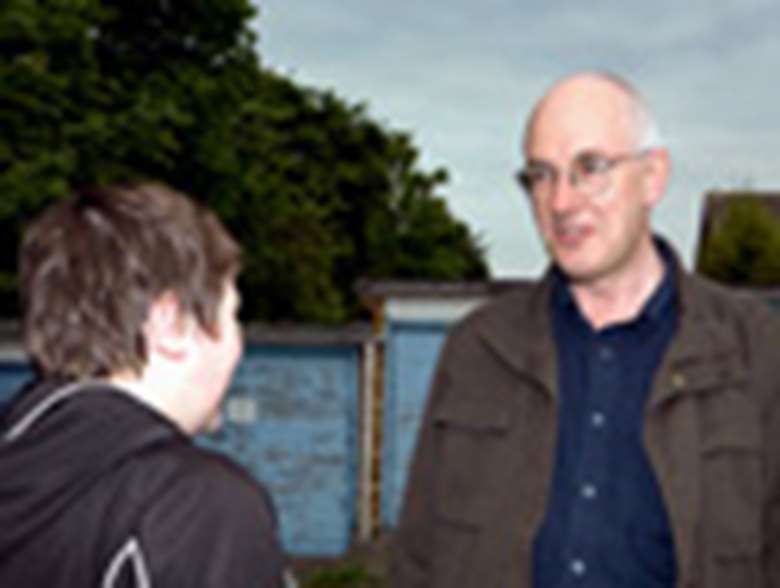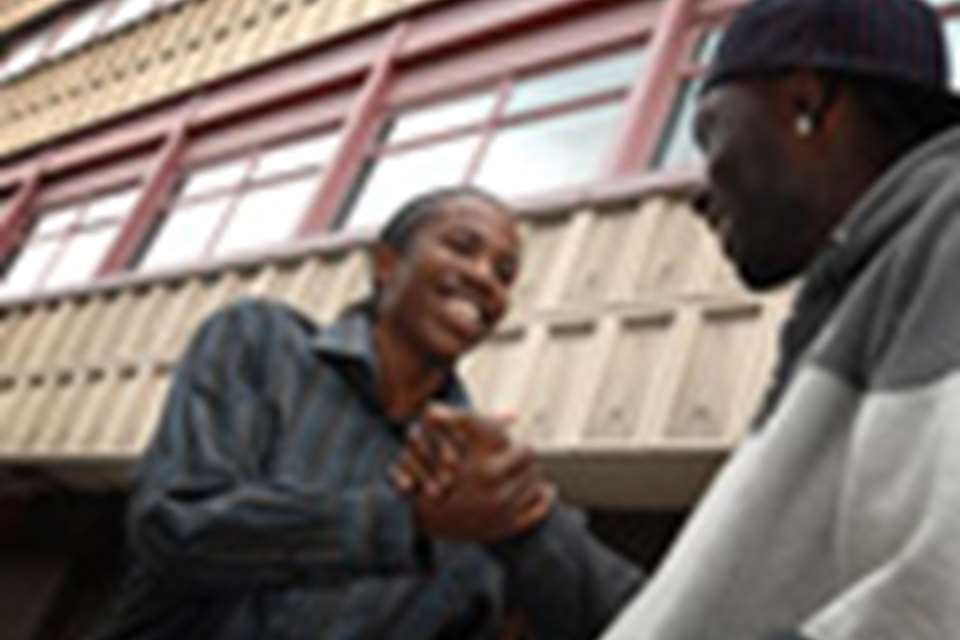Feature: Mentoring: Youth mentors: what works?
Tuesday, June 10, 2008
Mentoring is frequently cited as the solution to everything, from gang violence to under-achievement in schools.

But with so many schemes to choose from, what really works? Anne Gulland investigates.
When Rachel Bacon and her colleagues decided to launch a mentoring programme for young carers aged five to 18, little did they know how long it would take to set up. Action for Young Carers, a project within the Nottingham-based Carers' Federation, received funding in August 2006 but it was almost 12 months before the first mentoring relationships began.
Before the scheme even got funding, Bacon, a volunteer co-ordinator at the charity, and other staff members went on training days run by the Mentoring and Befriending Foundation. The foundation runs the approved-provider standard, a national benchmark supported by the Cabinet Office and the Department for Children, Schools and Families, for organisations that provide volunteer mentoring.
To win approved-provider status organisations have to ensure the programme has clear objectives and procedures for identifying and preparing mentees, as well as recruiting and screening mentors. Support for mentors is also important, as are systems for measuring the scheme's effectiveness.
"We needed to look at whether our policies were suitable and we had to create a lot of new procedures. We did a lot of work looking at how to keep the volunteers and young people safe. Setting up the scheme took a little longer than we thought," says Bacon.
At the beginning there was a temptation to recruit mentors quickly, she says. "But we spent a lot of time planning how things were going to happen. I'm glad we took our time."
As well as providing support to new mentoring schemes, the approved-provider standard is also an invaluable tool for programmes that are already running, says Val Barritt, the Mentoring and Befriending Foundation's regional co-ordinator for the East Midlands.
"For projects that don't have the standard it's a good way of conducting a health check of their scheme. They might realise some of their policies and procedures aren't quite as robust as they should be and it's a good opportunity to tighten them up," she says.
She recommends drawing up a business plan first of all. Organisations need to think about who they are targeting and if mentoring is right for them. Barritt adds: "The real magic of mentoring is it's one-to-one. It's that unique relationship. But you have to think about what can go wrong."
Bacon agrees that working with volunteers required a change of mindset. "You have to understand that volunteers work in a different capacity. Most of the staff here have an understanding of child protection and how procedures work. Volunteers don't do the same job as a member of staff. So we have to make sure the policies and procedures are appropriate for their role and ensure training is adequate."
Action for Young Carers now has 20 mentoring relationships after launching its first training programme in March 2007 and it aims to start its fourth round in August. Bacon was surprised at how easy it was to recruit volunteers - mainly through advertising at the local volunteer centre.
Most organisations who have met the approved-provider standard offer similar training: initial induction day; training days on areas such as child protection, health and safety and listening skills; and a process whereby mentors are matched to young people. Then the relationship starts and supervision of mentors is required. Barritt says organisations should always know who is meeting who, where and when, especially at the start.
Being clear about what the scheme offers and supervision of mentors is paramount. Organisations have to clarify what the role entails, says Andy Graham, volunteer co-ordinator at Mentoring Plus in Bath. "It's a funny role - a mixture of counselling, listening and support. It's definitely not a parental role and we have to make sure mentors are aware of boundaries."
Evaluating a scheme can be difficult, especially if its goal is to increase self-confidence or self-esteem. But Barritt says even small changes, such as having the confidence to place an order in a coffee shop, can be important.
Bacon adds: "It's breathtaking to see how far people come - mentoring allows them to do something they wouldn't have had the chance to do before. They're talking to someone focused on them and what they want to do. We've had young people enrol in college when before they would not have felt confident to do that."
DIARY - DANIEL*, 13
Before mentoring
I don't really like school - I find it really boring. But my teachers have told me I should go to Mentoring Plus, a place in Bath where young people get to hang out. It's quite cool - the people there are really nice. My mum thinks I should get a mentor but I think it will be boring. I don't know what to expect - I might get matched with someone who's old. I don't really get out much. There's a lot of old people round here and there's not much to do.
Meeting the mentor
Some young people and mentors met up and I got on well with two people - there was one lady who was really funny but she went away and I got on well with Mike who was really nice. I like Mike 'cause he's fun in a way and not too old. He's also really kind. We're going to meet up once a week. It's quite difficult meeting a new person but once you get to know them it's okay. My mum's met Mike and she thinks he's really nice as well.
Having a mentor
I've been meeting Mike since Christmas. When we meet up we always start off by talking about what we're going to do. We meet up after school and do things like get a pizza, go for a drink or just go to the park and have a chat about things. He always asks how I am and we talk about school and stuff like that. It's really great to have a mentor - we do fun things. My mum is out during the day and sometimes I'm on my own when I get in so it's good to be able to meet with Mike.
None of my school friends have a mentor and they think it's quite cool to have one. They've asked me what it's like and I've told them it's really fun. I also like meeting the other kids at Mentoring Plus - we go on group outings. That's really fun as well.
The future
I don't know what's going to happen in the future. We've been doing it for six months and I just want to keep it the same - going out and doing fun things.
*Not his real name
DIARY - MICHAEL TICHELAR
Michael is a manager in children's services at Bath and North East Somerset Council
BEFORE MENTORING
I became interested in young people's needs after being a foster carer and an adoptive parent. I thought I could offer support in other ways and mentoring seemed a good way to do it.
Michael's mentees
I have been mentoring since 2000 and Daniel is the fourth young person I've mentored. The first lad was 15 and that lasted two and a half years. He's now in his early 20s and I still see him.
He was quite a challenge and I wondered if I was making a difference. But I remember him saying: "You're really listening to me, you understand what I'm talking about." That's what mentoring is all about. Once a young person has developed a trusting relationship with an adult outside the family it can be very powerful.
The first lad wouldn't stop talking - he used me as a way of releasing tension. The second had been through the court system and mentoring was part of his court order. With the third young man I spend most of my time in the youth court.
Sometimes you feel you're not making much progress. The relationship has its limits and if you overstep those it can change the dynamic.
Relationship with Daniel
I've never mentored anyone as young as Daniel and he is quiet and reserved. He is cautious about opening up and talking about the issues affecting him but it is early days.
Daniel always wants to know what we're going to do when we meet up. It's a treat for him. But I would like him to talk to me more about what he's thinking and feeling.
Impact of mentoring
In the past eight years, mentoring has had a major impact on my understanding of how these kids live, how chaotic their lives are and how difficult it is to survive in an environment where they are often stigmatised and labelled as badly behaved.





